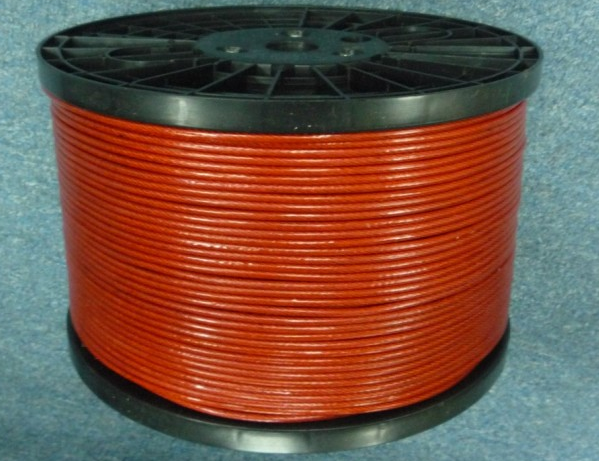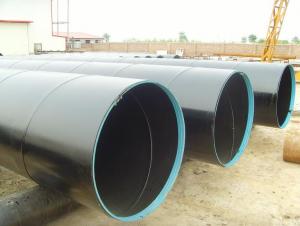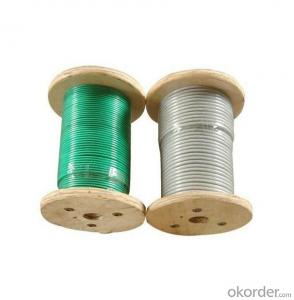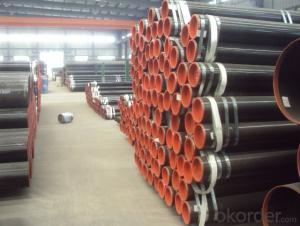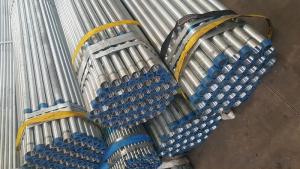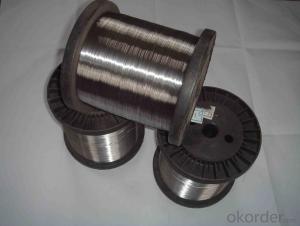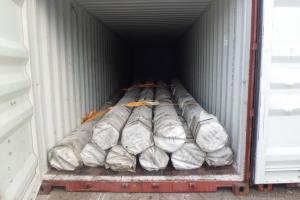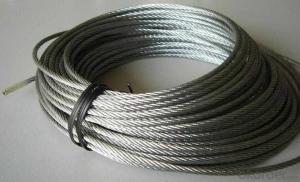Plastic Coated Steel Wire Rope Hot Sale and High Quality
- Loading Port:
- Shanghai
- Payment Terms:
- TT OR LC
- Min Order Qty:
- 100 m.t.
- Supply Capability:
- 3000 m.t./month
OKorder Service Pledge
OKorder Financial Service
You Might Also Like
Specifications
dark blue plastic coated steel wire rope
Surface: dark blue PVC
T/S: 1770N/MM2
Size: 8mm-30mm
Raw material | quality carbon steel , 60# , 65#, 70#, 72A, 82B |
Standard | ISO, DIN, ASTM, GB, etc. |
Construction | 1X7, 1X19, 6X7, 7X7, 6X19, 7X19, 6X37, 7X37, 6X25, etc |
Range of products | (Galvanized, Ungalvanized, coated PVC /PE )steel wire rope Hot dip galvanized steel wire rope, etc |
Diameter | 2mm - 44mm |
Packing | plastic spool, wood reel, coils, bag, etc |
Delivery time | 35 days |
1. Name: dark blue plastic coated steel wire rope
2. Raw material: quality carbon steel , 60# , 65#, 70#, 72A, 82B
3. Standard: ISO, DIN, ASTM, GB, etc.
4. Construction: 1X7, 1X19, 6X7, 7X7, 6X19, 7X19, 6X37, 7X37, 6X25, etc.
5. Range of products: (Galvanized, Ungalvanized, coated PVC /PE )steel wire rope, Hot dip galvanized steel wire rope, etc.
6. Diameter: 8mm - 30mm
7. Packing : plastic spool, wood reel, coils, bag, etc.
8. Delivery time : 35 days
- Q: How are steel pipes protected against mechanical damage during transportation?
- Steel pipes are protected against mechanical damage during transportation through various measures. One common method is the use of protective coating or wrapping materials. These coatings are usually made of materials like plastic, rubber, or epoxy, which provide a physical barrier to protect the pipes from scratches, dents, or other forms of mechanical damage. Another method is the use of padding or cushioning materials such as foam inserts or rubber gaskets. These materials are placed inside the pipes or around them to absorb any impact or shock during transportation. This helps prevent any potential damage caused by bumps or vibrations. In addition, steel pipes are often secured and immobilized within transportation containers using straps, braces, or other securing devices. These measures ensure that the pipes remain stable and do not move or collide with each other, reducing the risk of mechanical damage. Furthermore, proper handling and loading techniques are crucial in protecting steel pipes during transportation. This includes using appropriate lifting equipment, such as cranes or forklifts, to avoid dropping or mishandling the pipes. Additionally, pipes are often stored or stacked in a way that minimizes the risk of deformation or bending. Overall, a combination of protective coatings, cushioning materials, securement devices, and proper handling techniques are employed to safeguard steel pipes against mechanical damage during transportation. These measures help ensure that the pipes arrive at their destination in optimal condition, ready for use in various applications.
- Q: Can steel pipes be used for underground applications?
- Yes, steel pipes can be used for underground applications. Steel pipes are highly durable and can withstand the pressure and corrosion that may be encountered in underground environments. They are commonly used for various underground applications such as water supply, sewage systems, and underground utility lines.
- Q: Are steel pipes resistant to ultraviolet (UV) radiation?
- Ultraviolet (UV) radiation poses a threat to steel pipes as they do not possess inherent resistance. This type of radiation has the potential to induce degradation and discoloration in various materials, including steel. However, the extent of harm inflicted depends on several factors, including steel type, duration and intensity of UV exposure, and the presence of protective coatings or finishes on the pipes. Generally, uncoated steel pipes are more vulnerable to UV damage compared to those treated with protective coatings or finishes. Coatings such as epoxy or polyethylene act as a shield against UV radiation, effectively preventing steel degradation and discoloration. Hence, it becomes crucial to consider the specific application and environment when selecting steel pipes and implementing suitable protective measures to ensure their durability and performance.
- Q: How are steel pipes connected together?
- Steel pipes are typically connected together using various methods such as welding, threading, or using mechanical fittings, depending on the specific application and requirements.
- Q: What are the different methods of pipe joining for steel pipes?
- The different methods of pipe joining for steel pipes include welding, threaded connections, flanged connections, and grooved connections. Welding involves melting the two ends of the pipes together to form a strong bond. Threaded connections involve screwing the pipes together using thread tape or sealants to create a tight seal. Flanged connections use flanges and bolts to join the pipes together, providing a secure and leak-proof connection. Grooved connections involve using grooved couplings and gaskets to connect the pipes, allowing for quick and easy installation.
- Q: How do you calculate the pipe flow rate coefficient for steel pipes?
- To calculate the pipe flow rate coefficient for steel pipes, you can use the Darcy-Weisbach equation, which takes into account the pipe diameter, length, roughness factor, and the fluid properties such as viscosity and density. By rearranging the equation and solving for the flow rate coefficient, you can determine the value using empirical correlations or by conducting experimental tests under controlled conditions.
- Q: Can steel pipes be used for underground sewage treatment plants?
- Yes, steel pipes can indeed be used for underground sewage treatment plants. Steel pipes are commonly used in underground applications due to their durability, strength, and resistance to corrosion. They are capable of withstanding the harsh underground environment and can efficiently transport sewage from one area to another within the treatment plant. Moreover, steel pipes can be customized to meet the specific requirements of the sewage treatment plant, such as different diameters and wall thicknesses, ensuring proper flow and drainage. Additionally, steel pipes can be coated or lined with protective materials to enhance corrosion resistance, further extending their lifespan. Overall, steel pipes are a reliable and suitable choice for underground sewage treatment plants.
- Q: Seamless steel pipe and welded pipe what is the difference?
- Identification method: see the inside of the pipe, because the external, will deal with the welded pipe is inside a gap, you can see some, some, is not easy to see, you can slowly by hand touch, or see the specifications are relatively thin, welded pipe
- Q: What is the difference between steel pipes and cast iron soil pipes?
- Steel pipes and cast iron soil pipes differ in their composition and characteristics. Steel pipes are made of an alloy of iron and carbon, providing them with high strength and durability. They are commonly used for transporting fluids and gases, and are resistant to corrosion. On the other hand, cast iron soil pipes are made from molten iron that is poured into molds. They are primarily used for drainage and sewage systems due to their excellent soundproofing properties. Cast iron soil pipes are more resistant to fire and have a longer lifespan compared to steel pipes. Additionally, cast iron soil pipes are typically heavier and thicker than steel pipes, making them more suitable for underground installations. However, steel pipes are lighter and easier to handle, making them a preferred choice for above-ground applications. Ultimately, the choice between steel pipes and cast iron soil pipes depends on the specific requirements of the project, such as the intended use, location, and budget.
- Q: Are steel pipes suitable for underground irrigation systems?
- Underground irrigation systems can indeed benefit from the use of steel pipes. Renowned for their durability and strength, steel pipes exhibit resistance to corrosion and can withstand significant pressure. Furthermore, they are less prone to cracking or breaking when subjected to the weight and pressure of the ground. Moreover, steel pipes boast an extended lifespan, alleviating the need for frequent replacements. Nevertheless, it is crucial to consider the composition of the water being conveyed, as certain minerals or chemicals may induce corrosion over time. In such instances, it might be necessary to employ corrosion-resistant coatings or liners. All in all, steel pipes represent a dependable choice for underground irrigation systems, particularly in regions characterized by elevated water pressure or when durability takes precedence.
Send your message to us
Plastic Coated Steel Wire Rope Hot Sale and High Quality
- Loading Port:
- Shanghai
- Payment Terms:
- TT OR LC
- Min Order Qty:
- 100 m.t.
- Supply Capability:
- 3000 m.t./month
OKorder Service Pledge
OKorder Financial Service
Similar products
Hot products
Hot Searches
Related keywords


